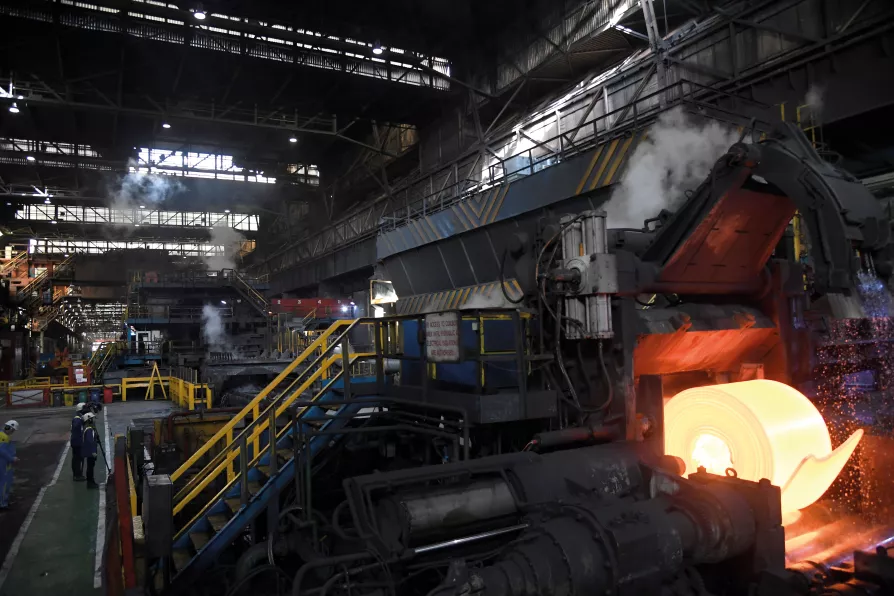The PM says Mandelson 'betrayed our values' – but ministers and advisers flock to line their pockets with corporate cash, says SOLOMON HUGHES

 NATIONALISE IT: The steel rolling mill in Tata Steel, Port Talbot, south Wales
NATIONALISE IT: The steel rolling mill in Tata Steel, Port Talbot, south Wales
THERE we have it. As predicted, Labour have won by a significant margin, and however fragile the foundations of their landslide victory, Keir Starmer has nevertheless become the new Prime Minister.
But before he even has the chance to spend his first night in Number 10, we need to know what Labour’s £3 billion deal for steel is really worth.
In February, Labour committed to a £3bn fund for the steel industry to be spent over five years instead of a decade as originally planned. This was a promise that came despite a U-turn (one of many) on their flagship £28bn green investment pledge.
The unfolding crisis at Tata Steel in Port Talbot looms over Labour’s celebrations following their victory yesterday. Indeed, on the same day that people were casting their votes, many marking X next to a Labour candidate, plumes of steam were visible from the steelworks as blast furnace 5 was being cooled in preparation for its closure.
For months, uncertainty has shrouded the site in Port Talbot, where plans to shut down blast furnaces 4 and 5 have caused significant anxiety among workers and the community.
This has been exacerbated by threats that the company would accelerate the closures in response to strike action by Unite. While a fresh set of negotiations between the union and the company have begun, Tata is offering no renegotiation of their closure plans — plans which are now coming to fruition.
This only makes the sense of urgency and emergency even more acute. Since the announcement of the £3bn for steel, very little else besides this figure has been revealed — we have no idea how much of this will be dedicated to Port Talbot, we have no idea how Keir Starmer intends to prevent the loss of thousands upon thousands of jobs in the sector, and we have no idea as to how this new government intends to stop the imminent closure of blast furnace 4. This remains a fight for the future of the steel industry, thousands of livelihoods, and our communities.
This new Prime Minister has to step up, put his money where his mouth is, and prove his commitment to Welsh steelmaking from day one.
And despite the Welsh government’s rhetoric about good faith negotiations, Tata Steel has made it perfectly clear that they have no intention of negotiating in good faith.
A serious question remains as to whether this is the type of company that should be operating in Wales. Where does all of this fit into the Welsh government’s fair work and “social partnership” agenda?
This is why nationalisation must be put on the table as a viable option to secure a strategic resource and safeguard it for the future. Nationalisation would buy time, allow the government to make the necessary investments on its own terms and meet strategic aims without being dictated to by a multinational corporation indifferent to the communities that it impacts.
Nationalisation could pave the way for a variety of possible futures that would otherwise be closed off to us. I and Plaid Cymru have been especially vocal about the possibility of enabling the co-operative models of ownership that have proven so successful in the Basque Country.
Nationalisation does not necessarily imply perpetual government ownership, but instead underscores the government’s crucial role in maintaining a stake in industries of national importance.
It is astonishing that Welsh and British governments have not shown the faintest glimmer of curiosity. The Welsh government hasn’t explored this idea — or any ideas for that matter — adhering instead to directives from London and simply digging their heels in.
The self-styled Welsh Labour Party’s lack of curiosity and ambition in this matter is disappointing. There is much talk about a unique “Welsh way” of doing things, yet no actions reflect this within the context of the current crisis.
Because that’s what this is — it’s a crisis. Without action, the question must be asked: have the Welsh and British governments given up on either changing Tata’s proposals or steering the future of the site onto a more positive and hopeful path?

LUKE FLETCHER pours scorn on Labour’s betrayal of the Welsh steel industry, where the option of nationalisation was sneered at and dismissed – unlike at Scunthorpe where the government stepped in












